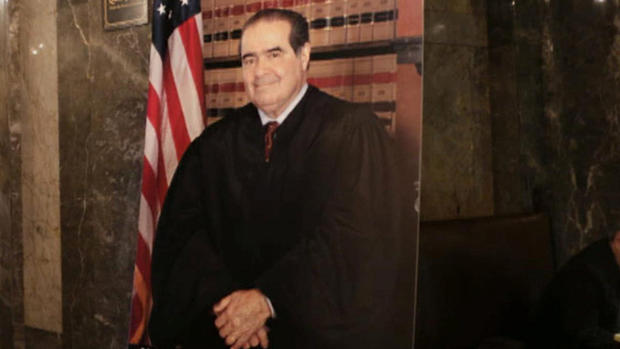Supreme Court meets for first time Monday since Scalia's death
WASHINGTON -- The Supreme Court meets Monday for the first time since the death of Justice Antonin Scalia, as speculation swirls over a potential successor.
President Barack Obama has vowed to nominate a candidate to take Scalia's seat, but Senate Republicans, backed by their party's presidential contenders, have pledged to block anyone Obama puts forward. Republicans have said the choice should await the next president.
Eight justices are expected to take the bench at 10 a.m. ET Monday and resume the court's work. Scalia died in Texas on Feb. 13. He was honored at a funeral mass on Saturday morning and was later buried in a private ceremony.
CBS News' Jan Crawford reports this marks an "uncertain chapter" for the Supreme Court. None of the justices has ever served on the high court without Justice Scalia.
Justice Clarence Thomas said last week that "it is hard to imagine the court" without Scalia, who served as a justice for nearly 30 years.
Scalia's sharp questioning of lawyers transformed arguments into lively sessions in which the justices sometimes seemed to be talking to each other, rather than to the lawyers arguing before them.
The void created by Scalia's death will be visible on Monday. His chair, draped in black wool crepe, will remain in its usual place to the right of Chief Justice John Roberts until next month.
Only in late March do the justices plan to switch seats in line with their seniority on the court. Justice Anthony Kennedy is now the longest-serving member of the court, with 28 years of experience.
Arguments in two cases are scheduled for Monday. One involves a dispute over preferences given to military veterans seeking Veterans Administration contracts. The other case concerns whether evidence of a crime should be thrown out of court because the police did something wrong or illegal that led to the discovery of the evidence.
One of the term's biggest cases, a challenge to Texas' strict regulation of abortion clinics, awaits the court next week.
For many of the controversial cases, including the one challenging the president's 2014 immigration actions, the court could wind up in a 4-4 tie, which will result in either the lower court's decision standing or the Supreme Court resetting those cases for arguments in the next term.
The president, meanwhile, was expected to spend the weekend reviewing material that included information on possible nominees.
